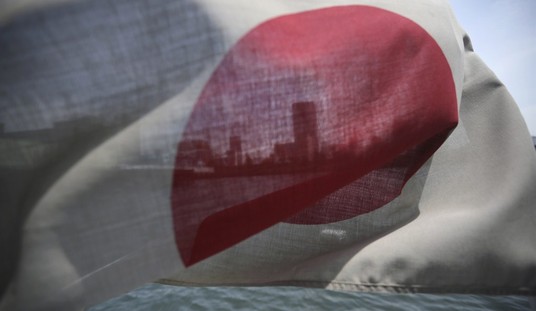According to an article in The New York Times, on August 15 of this year a successful cyberattack struck Aramco, Saudi Arabia’s national oil company and the world’s largest oil producer. The virus-based attack wiped the hard drives of 30,000 personal computers, three-fourths of the company’s internal network, replacing data files with the image of a burning American flag. Damage was limited to the corporate communications network, which is isolated from the oil production and pipeline control systems.
Not surprisingly, all fingers point to Iran as the suspected perpetrator of the attack. Security officials theorize that the attack was initiated by an Aramco insider using nothing more sophisticated than a USB memory stick. The Times article further reports:
American intelligence officials blame Iran for a similar, subsequent attack on RasGas, the Qatari natural gas giant, two weeks after the Aramco attack. They also believe Iran engineered computer attacks that intermittently took America’s largest banks offline in September, and last week disrupted the online banking Web sites of Capital One and BB&T.
The attacks have implications for domestic politics, specifically a cyber-defense bill that is being pushed by the Obama administration. Defense Secretary Leon Panetta referred to the Aramco attack in an October 11 speech in New York.
Panetta Warns of Dire Threat of Cyberattack on U.S.
In August, a cybersecurity bill that had been one of the administration’s national security priorities was blocked by a group of Republicans, led by Senator John McCain of Arizona, who took the side of the U.S. Chamber of Commerce and said it would be too burdensome for corporations. …
With the legislation stalled, Mr. Panetta said President Obama was weighing the option of issuing an executive order that would promote information sharing on cybersecurity between government and private industry. But Mr. Panetta made clear that he saw it as a stopgap measure and that private companies, which are typically reluctant to share internal information with the government, would cooperate fully only if required to by law.
“We’re not interested in looking at e-mail, we’re not interested in looking at information in computers, I’m not interested in violating rights or liberties of people,” Mr. Panetta told editors and reporters at The New York Times earlier on Thursday. “But if there is a code, if there’s a worm that’s being inserted, we need to know when that’s happening.”
An October 8 article in the Times told of a cyberattack on Iran’s oil producing and exporting infrastructure, including offices, oil rigs and the vital export terminal at Kharg Island. The time frame reported in the article (“over the past few weeks”) fails to clarify which attack came first. The Iranian Oil Ministry was the subject of a separate cyberattack (“Flame“) in April/May of this year that caused the Ministry to isolate its computer network from the systems that manage its oil production. The Flame virus appears to have been created by the same team that is responsible for Stuxnet, the virus responsible for crippling Iran’s uranium enrichment program.
Cross-posted at stevemaley.com.













Join the conversation as a VIP Member